A precious guide
Above all, guidance counsellors assist students with self-awareness. They are experts in providing assistance, evaluation of psychological and personal resources and environmental conditions.
The guidance counsellor helps the student recognize their personality traits, values and interests, to persevere with their studies and find their place in society. They are also present for parents who need guidance to support their children.
In the school setting, this translates to personalized support to help the student with self-discovery, active exploration of educational, occupational and job market information, and confirmation and achievement of career plans. The counsellor typically meets students on an individual basis but will also be called upon to visit students in a classroom setting.
Generally, the scope of intervention and guidance in secondary school are:
- Offering personal consultation to help students make educational and occupational choices.
- Facilitate access to educational and professional documentation and information.
- When required, employ standardized tools to better position students in their educational and occupational orientation and follow their progress.
- Inform students on the options and grading when they register, to help them make wise choices regarding their chosen school pathway.
- Promote a collaborative guidance approach with other school stakeholders.
- Actively support and inform teachers on different guidance activities.
- Involve, equip and support parents in their understanding of professional guidance counselling.
To better understand guidance needs
The guidance needs of students are diverse and dependent on their psychological function, their environment and the resources available to them. This model proposes an understanding of the different types of needs and interventions to respond to them. It offers descriptions of general needs (tools, information, support), distinctive needs (assistance and support) and special needs requiring clinical intervention.
It should be noted that beyond the roles of different personnel, particular and specific skills are required to respond to these different needs.
Visualize the pyramid of needs
The Ordre des conseillers et conseillères d’orientation du Québec (OCCOQ) has prepared a document for consultation: (in French only) Pyramide des besoins en orientation
A guidance counsellor must be a member of a professional order, namely the Ordre des conseillers et conseillères d’orientation du Québec (OCCOQ). The Order’s mission is to protect the public and ensure that counsellors respect the Order’s code of ethics. Only members of the Order have the right to use the title of Guidance Counsellor.
In elementary
Not all elementary schools have a guidance counsellor on staff, but increasingly due to the integration of compulsory content in educational and vocational guidance, it is possible to contact a counsellor. Inquire at your child’s school.
In secondary
Each secondary school normally has a guidance counsellor that can respond to your questions. Simply inquire at your child’s school.
In private practice
The OCCOQ can help you find a professional in private practice in your region.
Local employment centres (CLE)
Job seekers who want to discuss their career path can consult local employment centres of the Ministère du Travail, de l’Emploi et de la Solidarité sociale. A list of CLEs is available on the ministry’s website.
Other organizations
Other employment organizations can also assist youth and their parents, whether it is for guidance services or to seek educational and vocational information. This is the case notably with youth employment centres, local employment centres and networks of specialized manpower services.
Guidance services are generally offered in the schools of Quebec’s school boards and school service centres, private secondary schools, Quebec’s SARCA network, public and private cégeps and universities. Do not hesitate to consult counsellors at these establishments for personalized support.
In 2017, the Ministry of Education (MEQ) made Academic and Career Guidance Content (ACGC, or ‘COSP’ in French) compulsory for all students from Grade 5 of elementary to Secondary 5 in order to improve academic and career orientation.
These activities aim to gradually equip students in their reflection on their academic and career choices, as well as help prepare them for the different transitions they will experience. ACGC-COSP learning activities are presented to students across the different subjects taught, complementary to existing measures in schools, notably the professional services offered by guidance counsellors. To know more, consult this page on the MEQ website.
